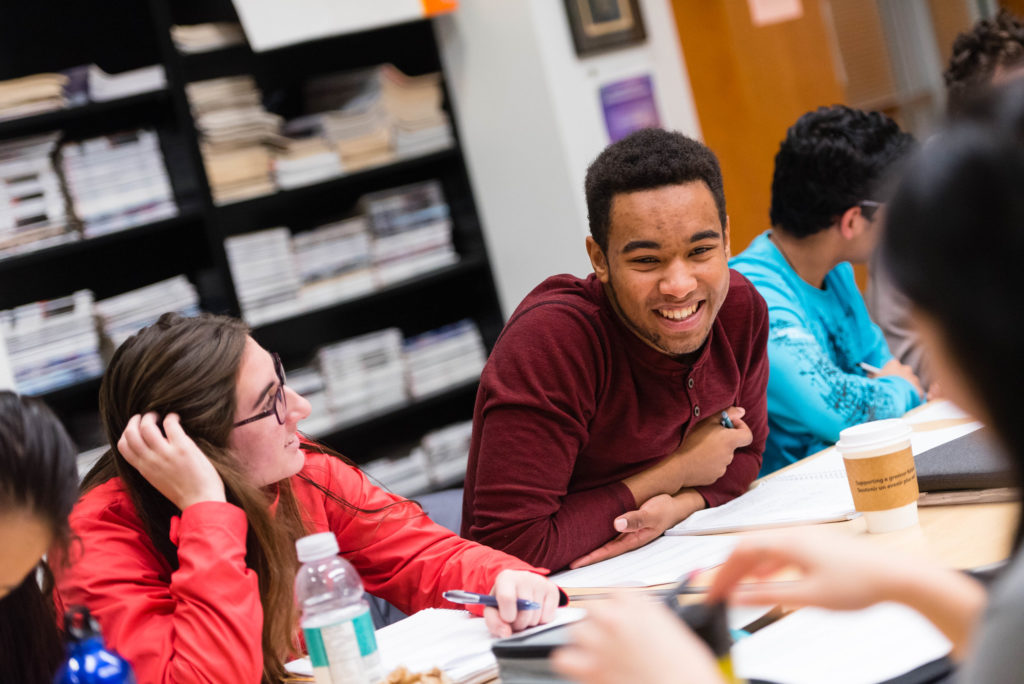
At UBC, inclusion is a commitment to create a welcoming community where those who are historically, persistently, or systemically marginalized are treated equitably, feel respected, and belong. As recent events across North America and on campus have highlighted the pervasiveness of systemic racism, UBC President Santa J. Ono has reaffirmed UBC’s commitment to inclusion and called for the acceleration and intensification of efforts to build a more inclusive campus community (Strategy 4: Inclusive Excellence). Part of this work is creating supportive and equitable learning environments, and to help achieve this the Inclusive Teaching @ UBC initiative provides resources for instructors, graduate students and staff looking to foster inclusive teaching practices.
Inclusive Teaching @ UBC is a partnership between the Centre for Teaching, Learning and Technology (CTLT) and the Equity and Inclusion Office (EIO) that aims to align efforts to create a learning environment at UBC where all students feel that their differences are valued and respected, have equitable access to learning and other educational opportunities and are supported to learn to their full potential.
Instructors across the university have been doing amazing work in this area for a long time, but there wasn’t a central place for people to go and learn, explain Dr. Hanae Tsukada and Dr. Hélène Frohard-Dourlent, EIO Educational Strategists who collaborated with the CTLT to develop the platform.
Since 2017, they have been working with the CTLT to promote inclusive learning practices at UBC and developing resources for instructors to incorporate in every stage of a course, from curriculum, course design and teaching practice, right through to assessment.
Substantial research shows that inclusive teaching can positively impact students’ learning, engagement and achievement. Questions of equity, diversity and inclusion are especially important for students who belong to social groups that have been historically, persistently or systemically underrepresented or marginalized. This is because such students often experience barriers to learning in environments where they do not have equal access to learning materials or opportunities, where their lived experiences are absent or only represented through stereotypes, or where they don’t feel a sense of belonging.
Dr. Tsukada brought her lived experience of the importance of inclusive learning environments to the project, after she experienced these barriers first-hand as a graduate student. “I came to Canada as an international student, so marginalization in the university has been a very real experience for me,” she says. “That shaped my interest in trying to make sense of my experience and why it was so difficult and even traumatic for me as a racialized woman trying to teach social justice issues in the classroom.”
To see systemic change, it matters how and what universities teach. Evidence shows that instructors and TAs can hold unconscious bias that impacts things in the classroom, like whose voices are prioritized, how students and their work are perceived, or what knowledge is valued.
“We often think of the materials we use in teaching as being void of subjectivity, but part of our work is to invite instructors to think about the examples we use and how they can contribute to messaging,” says Dr. Frohard-Dourlent. “If you’re only ever using English-sounding names or only using examples of heterosexual couples, for instance, what kind of message is that sending to your students?”
Faculty who are interested in learning more about inclusive teaching are invited to start with the introductory online course created by Dr. Frohard-Dourlent, Dr. Tsukada, and their colleagues at the CTLT and the EIO, which began as a collaboration project between UBC and Queen’s University. The course covers topics such as navigating difficult conversations and making course design more inclusive.
Complementing these resources, a series of learning scenarios related to micro-aggressions, racism, and other discriminatory experiences encountered in the classroom are also being developed by CTLT and EIO staff. The scenarios – based on student input and experiences – seek to inform faculty members and instructors as to how they can respond in ways that are most supportive of students and conducive to ensuring an inclusive classroom climate.
Linked to these efforts, and emerging in response to the urgent need to address systemic bias and racism in higher education, CTLT and EIO have also launched a five part Anti-Racist Teaching Series of workshops for UBC faculty, staff, and educators. Workshops are designed to guide participants through a reflection on their own roles, experiences, insights, as well as fears and concerns as educators, and develop an introductory understanding of concepts such as anti-racism, privilege, allyship, and solidarity especially in the context of online teaching and learning.
And, as courses and learning opportunities move online in response to COVID-19, the Inclusive Teaching @ UBC website also provides resources for instructors as they adapt courses and material to online formats, to help make them as accessible and inclusive as possible while avoiding unintentionally reproducing or exacerbating inequities.
The initiative is guided by UBC’s Inclusion Action Plan. To learn more about the resources available, visit Inclusive Teaching @ UBC.